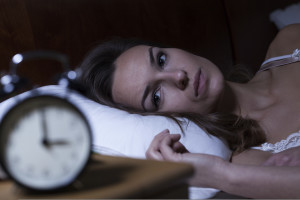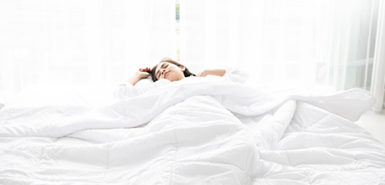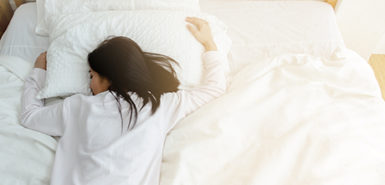
Lack of sleep and poor sleep cause problems for so many women during menopause.
In fact, according to the National Sleep Foundation, approximately 61 percent of menopausal women have sleep difficulties. These problems are often related to hot flashes or night sweats, and can also be the source of daytime drowsiness and mood changes.
It’s also important to remember that sometimes complaints of fatigue and poor sleep are related to other disorders, such as sleep apnea, depression and fibromyalgia.
We all know how much better we feel after a good night of sleep, so here are some helpful suggestions to help you manage disrupted sleep:
- Wear loose clothing to bed—clothing made of natural fibers, like cotton, is usually best.
- Keep your bedroom cool and well ventilated.
- Avoid certain foods that may cause you to sweat (such as spicy foods), especially just before bed.
- Maintain a regular bedtime schedule, including going to bed at the same time every night.
- Exercise regularly, but not right before you go to sleep.
- Avoid excessive caffeine.
- Empty your bladder before getting into bed.
- Avoid taking naps during the day.
- Talk to your doctor about prescription medications that can help you sleep.
- Practice metered breathing (described below) for five minutes every night before bed.
Guidelines for successful metered breathing:
- Sit comfortably in a room in your house (not your bedroom) that is peaceful.
- Set a timer for five minutes.
- Close your mouth and open your eyes.
- Focus on a spot on the wall, and breathe through your nose.
- Try not to allow stressful or distracting thoughts to enter your mind; focus only on the process of moving your breath in and out of your lungs.
Your metered breathing should be the very last thing you do before crawling into bed.
This can also be repeated any time you wake during the middle of the night and have difficulty falling back to sleep. Make sure you get out of bed and go back to the same spot you have established as the most relaxing place in your home.
Tossing and turning, and stressing about not being able to fall asleep is often counterproductive and will only make falling asleep again more challenging.
 /a>
/a>
 /a>
/a>
 /a>
/a>
Greetings I am so grateful I found your webpage, I really found you by mistake, while I was browsing on Aol for something else, Anyways I
am here now and would just like to say cheers for a marvelous post and a all round thrilling blog (I also love the theme/design), I don’t
have time to look over it all at the moment but I have book-marked it and also added in your RSS feeds, so when I have
time I will be back to read a great deal more, Please do keep up the excellent work.